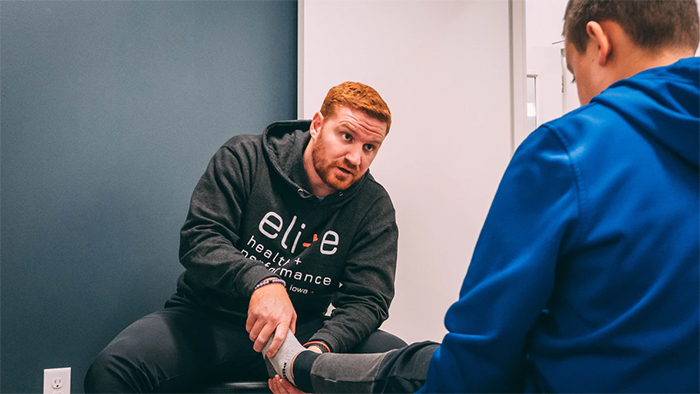Media
Targeting holistic healthcare with physiotherapy in public health
While considering health parameters, India is currently in a period of transition – economically, demographically, and epidemiologically. As healthcare systems try to fulfil the demands of populations living longer and with more complex health needs, healthcare delivery is shifting to preventive services from curative ones. The recent COVID-19 pandemic has emphasized the importance of preventive measures in ensuring the betterment of public health. The role of physiotherapy in public health goes on to be an important preventive measure.
A strong foundation for the public health sector is critical for a long-term healthcare system for a large nation like India, as it aids in lowering the country's mortality rate, addressing health disparities, improving the quality of life of the people, reducing comorbidity, and reducing the financial burden of treating chronic illnesses without considering the purchasing power of the service beneficiaries. All these factors have an effect on the role of physiotherapists working in the public health sector.
Role of Physiotherapy in Public Health
Public health necessitates a multidisciplinary approach that brings together a variety of healthcare professionals such as physicians, surgeons, nurses, rehabilitation specialists (physiotherapists and occupational therapists), pharmacists, dieticians, and social workers. Incorporating a holistic approach like this will expand the quality and range of services for the masses, and their outcomes will improve health parameters for the country.
The emergence of COVID-19 has posed a dire need for the exploration of rehabilitation options especially physiotherapy, in order to provide a continuum of care for patients to ensure their wholesome recovery.
Holistic approach for the progress of healthcare
Physiotherapy plays a significant role in the rehabilitative management of a healthy as well as medically sick individual. Physiotherapy has different ranges of specialisations such as cardio-pulmonary, musculo-skeletal, neurological, sports medicine, etc. Physiotherapists today, work in private hospitals, sports centres, private clinics, home care, long-term care homes, and public health centres such as district hospitals under national urban and rural health missions, among other places. Their services are easily accessible for patients belonging to the higher economic strata.
 One step at a time (Source: iStock)
One step at a time (Source: iStock)
Their integration into the public health system, on the other hand, has been limited, and the demand for their services vastly outnumbers their availability in the healthcare system. There is a need to appoint more physiotherapists in the system as they can play a variety of roles for a holistic medical team, including working one-on-one with patients with musculoskeletal and neurological disorders, providing injury prevention training (ergonomic, balance, agility) educating patients and caregivers about chronic disease prevention and management.
Currently, majority of patients are approaching physiotherapy treatments on a referral basis, thus, networking with practicing physicians and surgeons is important to ensure the patient flow in the system.
Existing Service Models
The integration of physiotherapy services at both the institutional and community levels, allow for a more comprehensive approach to community treatment. A hospital is a patient's first point of contact, and a physiotherapist may be able to help patients along with physicians and surgeons.
The role of physiotherapy in public health is evident in both private and public settings in India. Outpatient departments, private clinics, and in-hospital physiotherapy programmes have been established to serve the general population. Physical therapists are affiliated with sports associations and committees to provide on-field and off-field rehabilitation treatments, and home healthcare services can also include physiotherapy.
 Exercising in Physiotherapy (Source: images.unsplash)
Exercising in Physiotherapy (Source: images.unsplash)
The precise duty of a physiotherapist varies according to the needs of the individual population in question, as is essential for treatment. Some of these roles include members of inter-disciplinary health teams for direct service provision, educators and mentors in the field of noncommunicable disease prevention and management as well as lifestyle-related illnesses (e.g., obesity, diabetes, heart disease), infection prevention, women's and children's health, advocates for the establishment/development of education and healthcare programmes, screeners (for example, for lifestyle issues, HIV/AIDS, and mental health issues), consultants (e.g. to urban planners and government), leaders and active participants in healthcare policy decision-making.
Physiotherapy across Global Healthcare Systems
The idea "global public health" has been defined in several ways. A collaborative transnational research and action is helpful in improving everyone's health. An area of study, research, and practice, focused on promoting health and establishing health equity for people everywhere is essential. Global public health is a synthesis of population-based prevention and individual-level clinical care that emphasises transnational health issues, determinants, and solutions. It involves many disciplines within and beyond the health sciences and promotes inter-disciplinary collaboration.
There is a definite necessity for teamwork among health practitioners from various professional backgrounds as individual practitioners struggle to provide treatments that meet all of the patient's demands. Because of their expansive areas of expertise, physiotherapists are essential members of collaborative inter-professional teams.
 Patient centric care (Source: iStock)
Patient centric care (Source: iStock)
There is a requirement for new health technologies and innovation for the delivery of physiotherapy services and equipment in the present times, especially during the COVID-19 crisis as this will ensure a win-win situation for service providers such as physicians, physiotherapists, biomedical engineers, and patients. This will help nations deliver a holistic health approach for the well-being of all.
About the author:
Dr. Sapna K works with the Empower School of Health as a Public Health Professional. With an extensive background in medicine and a penchant for Public Health, she strives to contribute to the future of healthcare.

